Quotes & Sayings About Television In The 1960s
Enjoy reading and share 8 famous quotes about Television In The 1960s with everyone.
Top Television In The 1960s Quotes
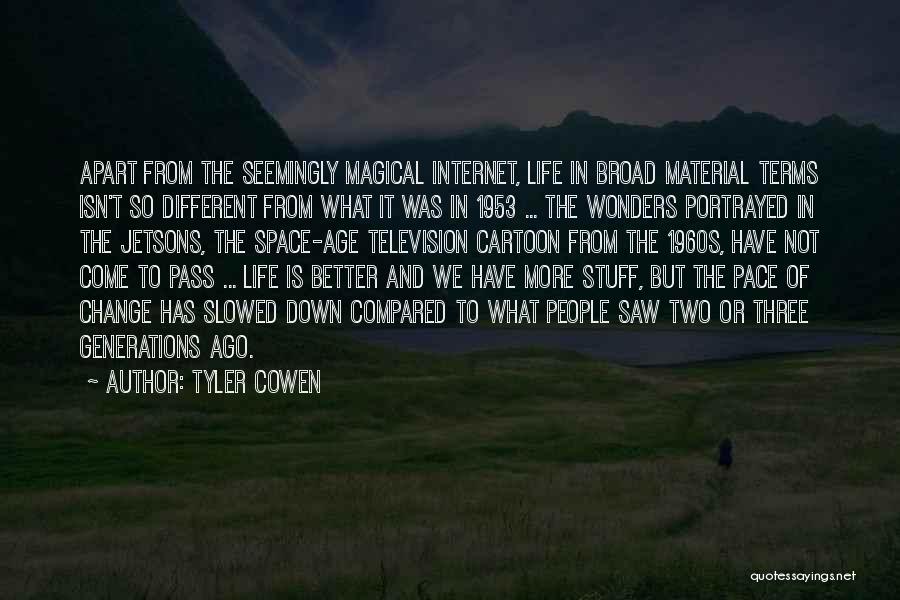
Apart from the seemingly magical internet, life in broad material terms isn't so different from what it was in 1953 ... The wonders portrayed in THE JETSONS, the space-age television cartoon from the 1960s, have not come to pass ... Life is better and we have more stuff, but the pace of change has slowed down compared to what people saw two or three generations ago. — Tyler Cowen
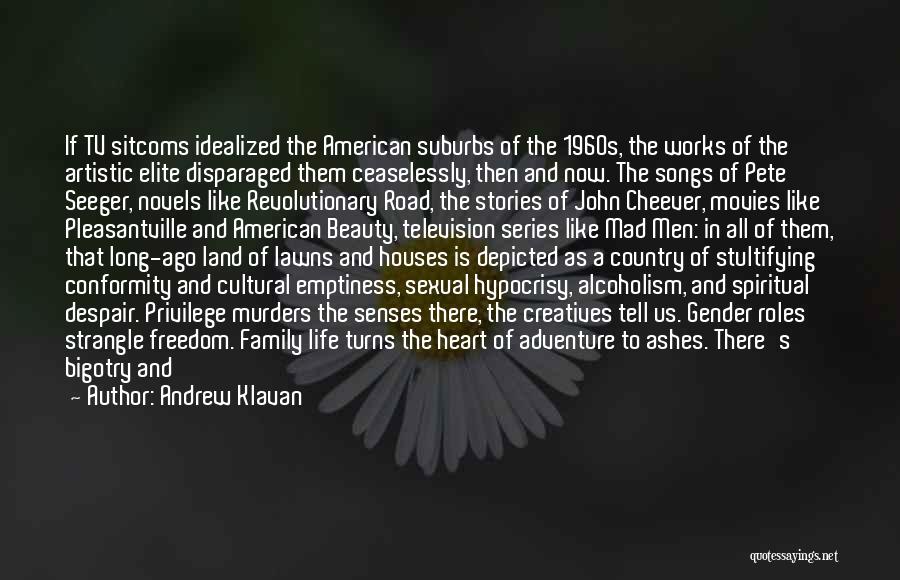
If TV sitcoms idealized the American suburbs of the 1960s, the works of the artistic elite disparaged them ceaselessly, then and now. The songs of Pete Seeger, novels like Revolutionary Road, the stories of John Cheever, movies like Pleasantville and American Beauty, television series like Mad Men: in all of them, that long-ago land of lawns and houses is depicted as a country of stultifying conformity and cultural emptiness, sexual hypocrisy, alcoholism, and spiritual despair. Privilege murders the senses there, the creatives tell us. Gender roles strangle freedom. Family life turns the heart of adventure to ashes. There's bigotry and gossip and dangerous liaisons behind every closed door. Oh, the soul, the human soul! In the suburbs of fiction, she is forever dying. But — Andrew Klavan
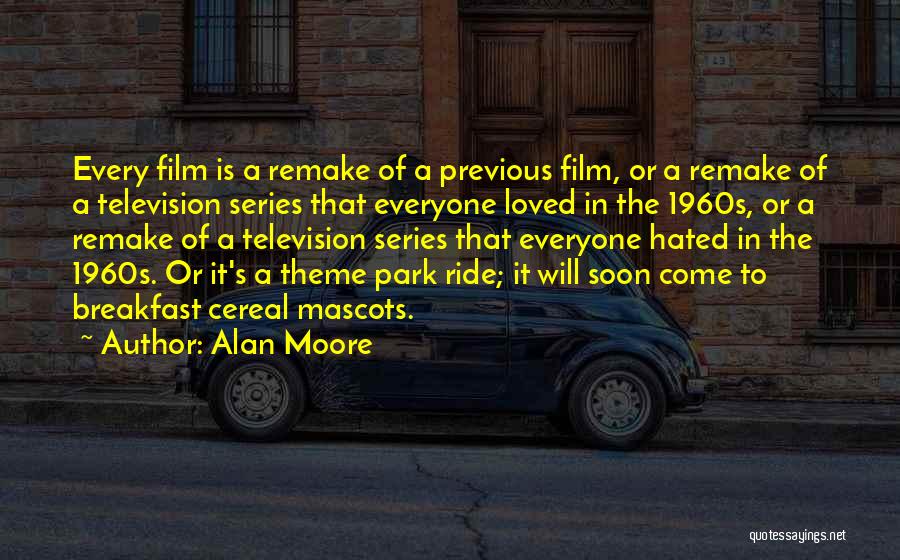
Every film is a remake of a previous film, or a remake of a television series that everyone loved in the 1960s, or a remake of a television series that everyone hated in the 1960s. Or it's a theme park ride; it will soon come to breakfast cereal mascots. — Alan Moore
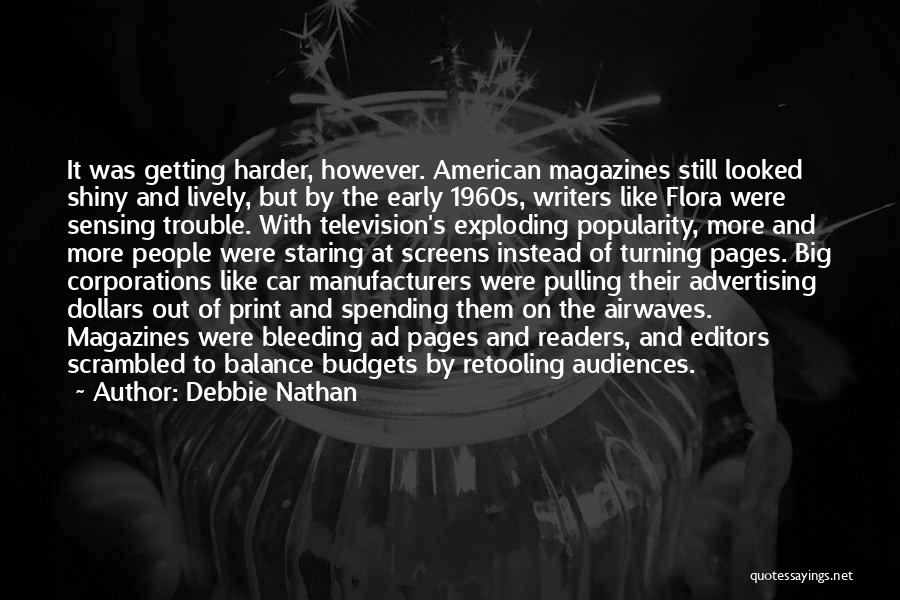
It was getting harder, however. American magazines still looked shiny and lively, but by the early 1960s, writers like Flora were sensing trouble. With television's exploding popularity, more and more people were staring at screens instead of turning pages. Big corporations like car manufacturers were pulling their advertising dollars out of print and spending them on the airwaves. Magazines were bleeding ad pages and readers, and editors scrambled to balance budgets by retooling audiences. — Debbie Nathan
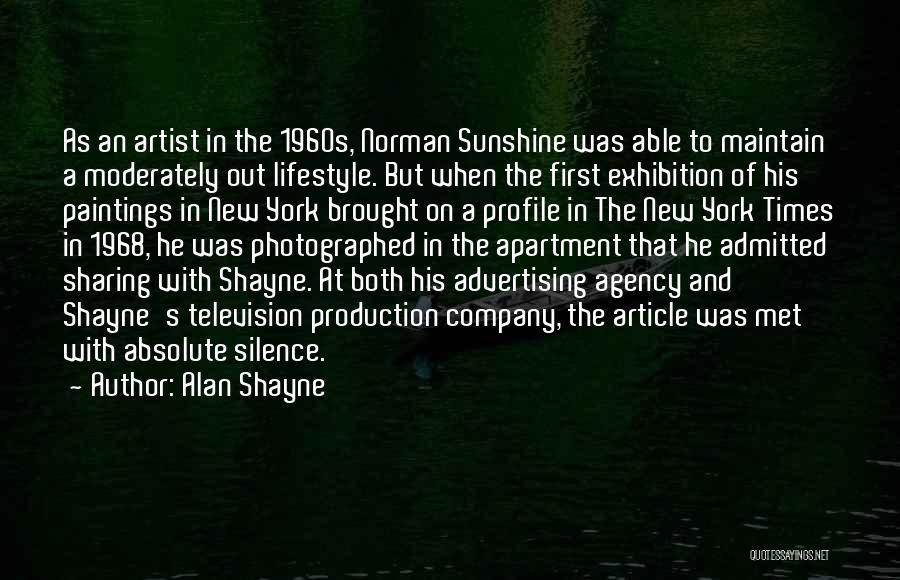
As an artist in the 1960s, Norman Sunshine was able to maintain a moderately out lifestyle. But when the first exhibition of his paintings in New York brought on a profile in The New York Times in 1968, he was photographed in the apartment that he admitted sharing with Shayne. At both his advertising agency and Shayne's television production company, the article was met with absolute silence. — Alan Shayne
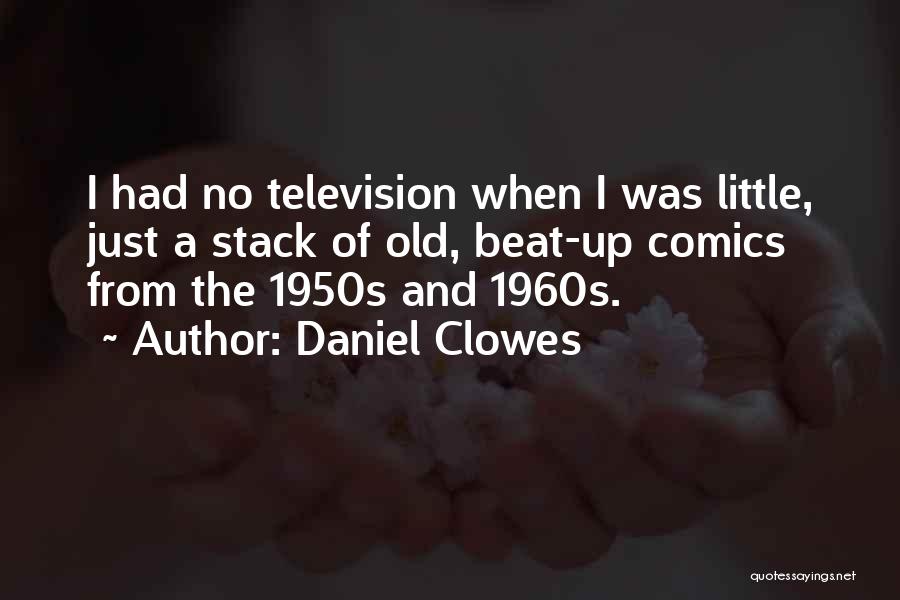
I had no television when I was little, just a stack of old, beat-up comics from the 1950s and 1960s. — Daniel Clowes
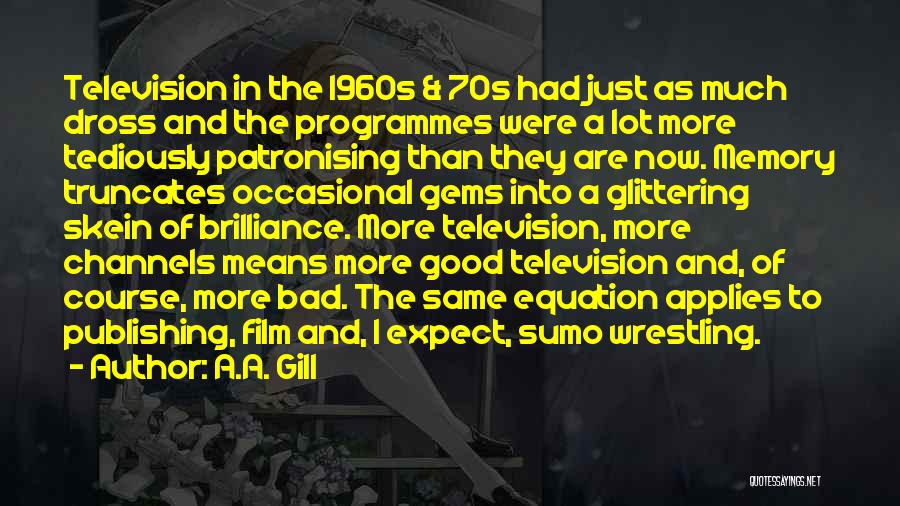
Television in the 1960s & 70s had just as much dross and the programmes were a lot more tediously patronising than they are now. Memory truncates occasional gems into a glittering skein of brilliance. More television, more channels means more good television and, of course, more bad. The same equation applies to publishing, film and, I expect, sumo wrestling. — A.A. Gill
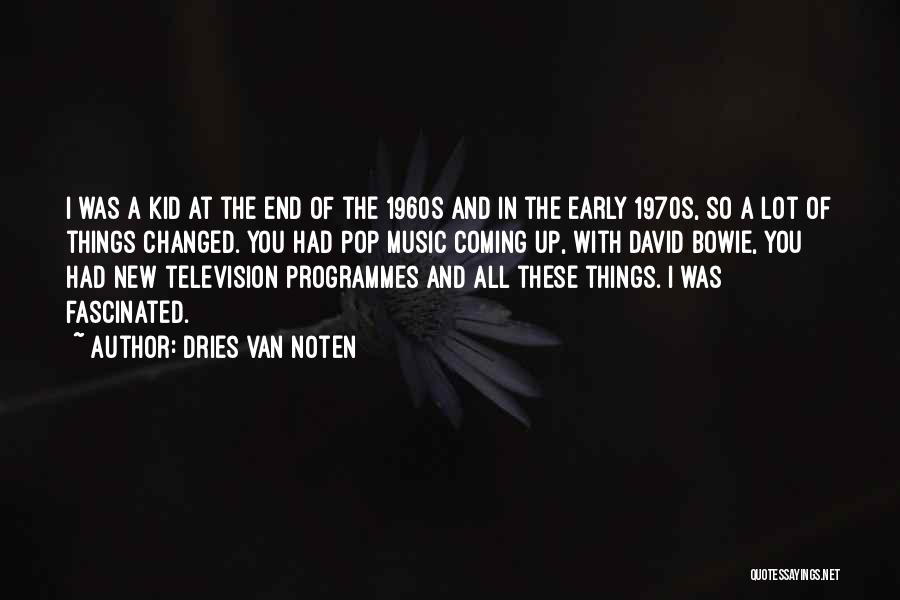
I was a kid at the end of the 1960s and in the early 1970s, so a lot of things changed. You had pop music coming up, with David Bowie, you had new television programmes and all these things. I was fascinated. — Dries Van Noten





